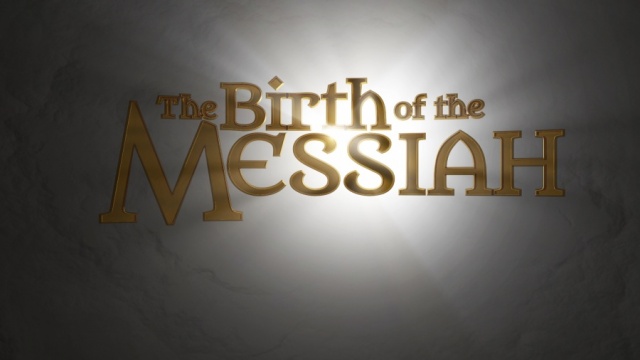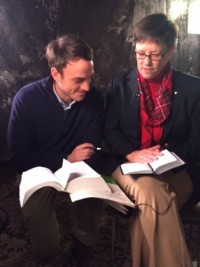SEARCH

 Such an understanding takes us beyond a literal or primitive reading of the text. As the truth of the Evangelists’ account is gradually revealed, Christians come to a more profound understanding of the Messiah and the consequences of discipleship today.
(Photo left: New Testament scholar Sr. Laurie Brink, OP and writer/director Sebastian Gomes examine a verse in Matthew's infancy narrative during their interview for The Birth of the Messiah)
With this in mind, we invite anyone who watches The Birth of the Messiah to reflect on these and other important questions during this Christmas season:
Such an understanding takes us beyond a literal or primitive reading of the text. As the truth of the Evangelists’ account is gradually revealed, Christians come to a more profound understanding of the Messiah and the consequences of discipleship today.
(Photo left: New Testament scholar Sr. Laurie Brink, OP and writer/director Sebastian Gomes examine a verse in Matthew's infancy narrative during their interview for The Birth of the Messiah)
With this in mind, we invite anyone who watches The Birth of the Messiah to reflect on these and other important questions during this Christmas season:
Reflection/discussion questions for The Birth of the Messiah 1) Matthew and Luke’s accounts differ significantly in historic detail. But they do agree on some fundamental points, that Jesus was the long-awaited and prophesied Messiah. Where else to Matthew and Luke agree? Why are these elements significant? How do these elements shed light on the historic variances? 2) Matthew’s protagonist is Joseph: What do we learn about Joseph in Matthew’s account? What can Joseph teach us about discipleship? 3) Luke’s protagonist is Mary: What do we learn about Mary in Luke’s account? What can Mary teach us about discipleship? 4) What do Matthew and Luke’s accounts suggest about their communities in the latter part of the first century? (Both gospels were written in different regions in the 80’s AD) 5) How does an historical-critical analysis of our Scriptures affect the way the Church reads and understands the Scriptures? Why is this so important today? 6) How do the infancy narratives challenge the Church today?